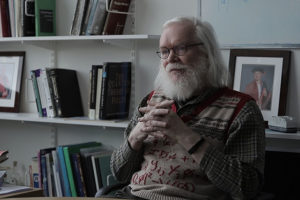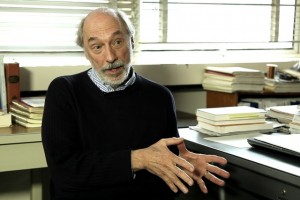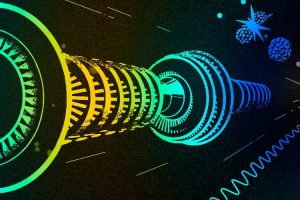Dark Matter
Physicist John Ellis on discovery of dark matter, ways to look for it and what dark matter particles might be
Are the exoplanets orbiting nearby stars so dim that they cannot be observed? How can we estimate their chemical composition? Senior Lecturer of Physics at Harvard University Ronald Walsworth talks on development of the exoplanets observations.
And so the ability to screen out that bright star and see the dim light from this earth if there is or any other sort a planet was a limitation, people weren’t able to do these sorts of things twenty years ago. We’re still not able to do that today. We may be in the next 10 to 20 years we build space-based telescopes that can cause the light from the star to destructively interfere so you can pull out the light from the nearby planet. We have to go to space to get rid of the corrupting effects the earth’s atmosphere.
What’s a laser frequency comb? It’s a laser, it’s a pulsed laser, it’s a laser that repeatedly pulses every nanosecond or so and each pulse is just a few femtoseconds long typically. Femtosecond is 10-15 seconds. Very short pulses. If the pulse is very, very short, its spectrum is very broad and if it’s repeating regularly every, let’s say, nanosecond, a billionth of a second and each pulse is coherent with the next one and you make an observation of a series of these pulses, one after the next, it creates a broad spectrum in which there’s constructive and destructive interference between the Fourier components, the different wavelength components that make up the pulses and instead of just getting a broad spectrum you get one spectral line after another.
So something like ten to twenty years from now we may be through this amazing once in human history period of discovering that there’re planets around other stars, finding true Earth analogs and answering the question do some of them give of the signatures of life. Just think about that! Most of us are lucky enough to be alive during this, what some people call the Second Copernican Revolution, this period enabled by improvements in measurement technology to answer this age-old question “Are we alone?”

Physicist John Ellis on discovery of dark matter, ways to look for it and what dark matter particles might be

MIT Senior Research Scientist Frank Taylor on two types of current interactions, experiments with predictive p...

Inspired by the structure of graphene, scientists design a new class of topological insulators with possible a...